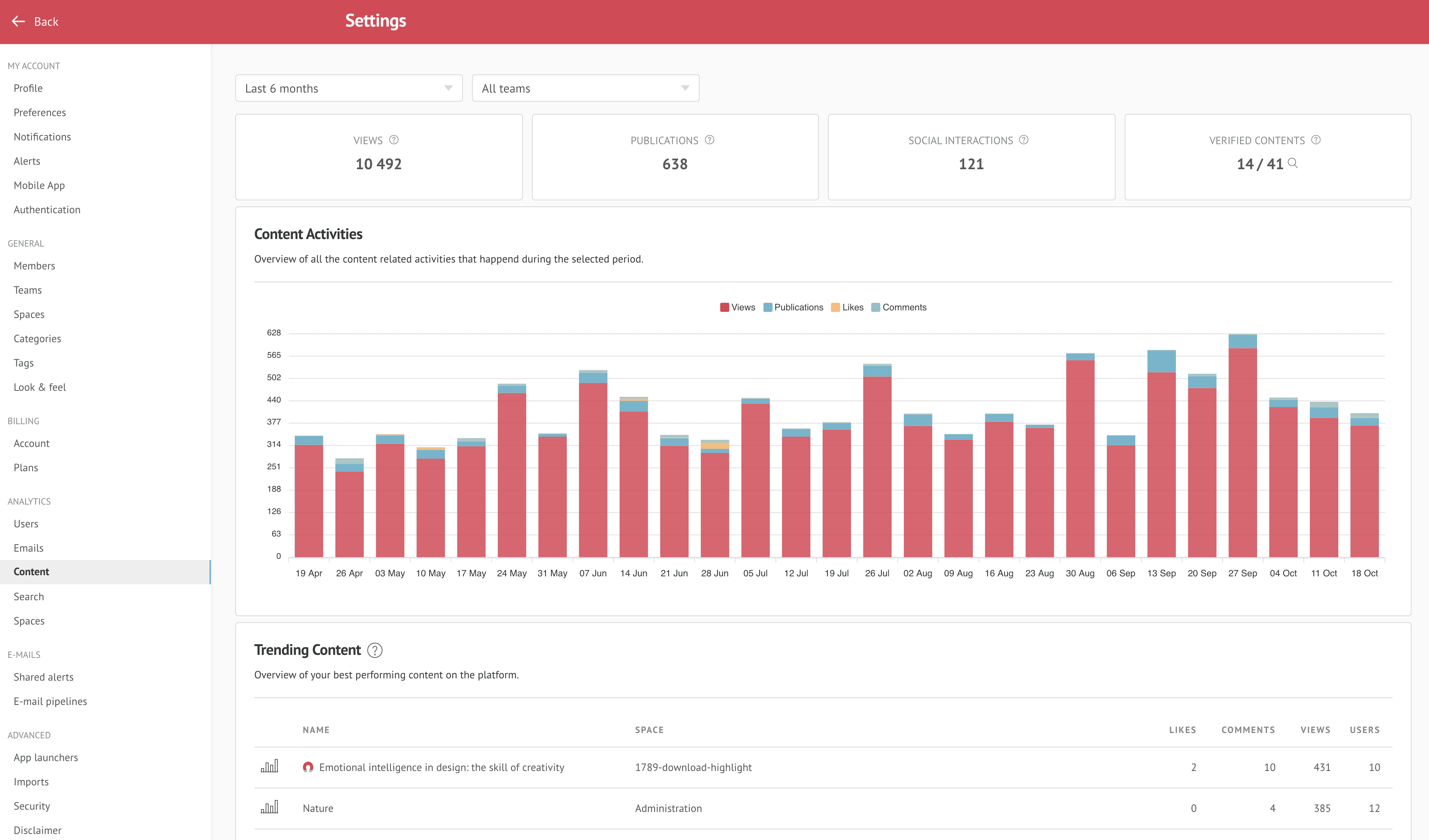Assessing the performance of your knowledge sharing project is critical.
 Luckily Elium provides in-depth analytics, at different levels of the platform.
Luckily Elium provides in-depth analytics, at different levels of the platform.
Discovering how many people have read a content, what are the platform’s most active users
or the most popular searches for knowledge. With Elium you can measure this and much more,
due to the advanced analytics options available for different areas of the platform:

Content-Level Analytics

User-Level Analytics

Space-Level Analytics

Global-Platform Analytics
For each content
Every piece of knowledge shared is important. And measuring its impact is key.
See how every single content that you share is performing. How many colleagues have opened it? How are they reacting to it? And how are the views evolving over time? You get your answers instantly.


For every users
Each member should be able to asses its impact on the platform. Elium makes it easy.
The My Dashboard section offers a bird-eye view of key metrics such as the total number of views, likes or comments, and individual content statistics.
For specific spaces
Space Administrators can see how each of them performs. With just one click.
Who are your most active users? What is the most popular content? As a Space Admin, discover at a glimpse how member are reacting to content.

As an Admin, you get boosted powers.
That means access to in-depth platform analytics.

Discover with ease key insights about platform’s usage, such as:
Key ambassadors
And involve them in promoting the platform.
Popular content
To better asses your team’s learning priorities.
Trending searches
And take action to respond to their knowledge needs.
Top Spaces
And take corrective actions for those underperforming.
Mobile vs. Desktop
And adjust you knowledge strategy accordingly.
Empower your teams to ship better work.
Offer them a central place for storing trusted company knowledge.
Request a demo
Start a free trial
Trusted by global companies, the versatile Platform Analytics helps to:




